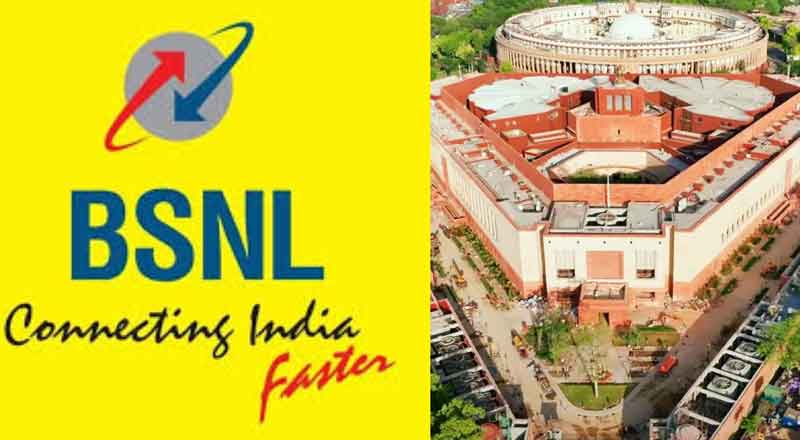BSNL’s Role in India’s Telecom Sector
Bharat Sanchar Nigam Limited (BSNL) is India’s state-owned telecommunications company, offering landline, mobile, and internet services across the country. Founded in 2000, BSNL has been a key player in connecting India’s rural and urban populations. However, in recent years, the company has faced challenges such as declining market share and lagging behind private competitors in terms of technology and service quality. Despite these issues, BSNL remains vital to India’s telecom landscape, particularly in rural and remote areas, and is actively working to revamp its services.
Committee Expresses Concern Over BSNL’s Declining Performance
On Monday, BSNL came under scrutiny from a parliamentary committee concerned about the company’s deteriorating service quality and shrinking subscriber base. Members of the Estimates Committee expressed dissatisfaction with the government-owned telecom’s performance, citing personal experiences with poor connectivity and service on BSNL-provided mobile phones. The committee was particularly concerned about BSNL’s dwindling market share, which now hovers around 7%, with private telecom operators increasingly dominating the sector.
During the meeting, BSNL officials acknowledged these concerns but assured the committee of significant improvements in the near future. They committed to addressing service issues within six months, with a particular focus on upgrading the network infrastructure.
Plans to Upgrade 4G Services and Expand Network Coverage
To address the growing concerns over service quality, BSNL has devised a plan to significantly enhance its 4G network. Officials revealed that the company aims to equip nearly 100,000 mobile towers with 4G capabilities in the next six months. Currently, only 24,000 towers are equipped with 4G technology, so this upgrade marks a substantial leap forward. BSNL’s leadership emphasized that this improvement will be powered by indigenous technology, aligning with the government’s “Aatmanirbhar Bharat” (self-reliant India) initiative.
In addition to expanding 4G services, BSNL is also preparing for the rollout of 5G services. According to the telecom officials, the transition from 4G to 5G is technologically feasible and will be executed in the coming years as part of the company’s broader strategy to regain competitiveness in the telecom sector.
Market Challenges and Government Support
BSNL faces an uphill battle in regaining its market position, especially with fierce competition from private operators such as Jio, Airtel, and Vi. The committee highlighted that private companies have become the preferred choice for mobile services due to better network reliability and coverage. However, recent tariff hikes by these private operators have led many customers to switch to BSNL, attracted by its more affordable plans.
BSNL’s leadership emphasized that the government is fully supporting the company’s efforts to modernize its services. The company is actively rolling out 4G upgrades, and some regions, such as Greater Noida, have already seen completed upgrades, with work progressing in other parts of Noida and beyond. BSNL hopes that this momentum will allow it to win back customer trust and expand its subscriber base.
BSNL’s Path Forward
BSNL is taking significant steps to improve its services and reclaim its standing in the highly competitive telecom market. With plans to expand 4G coverage and the eventual rollout of 5G, the company aims to enhance customer experience and attract new subscribers. Supported by government initiatives and responding to consumer demand for affordable telecom services, BSNL remains an important player in India’s telecom sector. The next six months will be critical in determining whether the company can successfully address the challenges it faces.
(With inputs from agencies)





